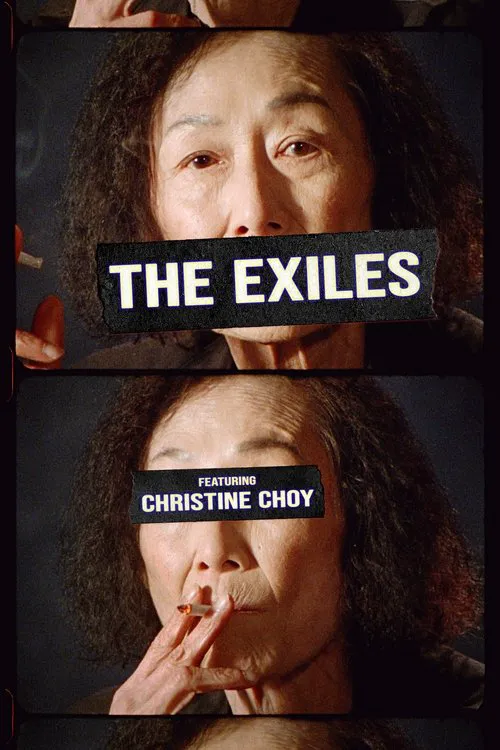The Exiles

Plot
The Exiles, a poignant documentary that weaves the threads of a pivotal moment in modern history, serves as a testament to the enduring power of activism and the indomitable human spirit. Christine Choy, a trailblazing artist, embarked on an ambitious project in 1989, capturing the stories of Tiananmen Square's pro-democracy leaders who had escaped to a life in exile. Though the project was unfinished at the time, Choy's tireless dedication to the cause has led her to revisit the material, sharing it with those who played a pivotal role in the 1989 protests. The film begins in Taiwan, where Choy meets with Wu'erkaixi, a charismatic leader of the Student Federation of the University of Political Science and Law. Wu'erkaixi, whose name has become synonymous with the Tiananmen Square protests, recounts his experiences, highlighting the sense of hope and idealism that fueled the movement. He reflects on the events of June 4, 1989, and the brutal crackdown by the Chinese military, which resulted in the deaths of hundreds, possibly thousands, of unarmed protesters. As Choy travels to Maryland, she visits Jinan University, where she encounters Liu Gang, another prominent leader of the student movement. Liu, now an older man, recounts his own experiences, including his involvement in the protests and his subsequent struggles to maintain his activism in the face of intense surveillance and persecution. It is during these interviews that the full impact of the Chinese government's clampdown becomes starkly apparent – the lives of these individuals were forever altered by the events of 1989, forced into exile and perpetual vigilance. Choy's visit to Paris serves as a poignant contrast to the other locations. Here, she meets with Wang Dan, another key player in the protests, who is living in self-imposed exile. Wang Dan's story serves as a powerful counterpoint to the tales of Wu'erkaixi and Liu Gang. Despite his own experiences in the protests, Wang Dan has maintained a level of optimism and hope that is both infectious and admirable. His words paint a picture of a nation on the cusp of change, driven by the courageous actions of those who spoke out against the government's authoritarian regime. Throughout The Exiles, Choy's own presence is a constant, a reminder of the human connection that exists between the subjects and the artist. She has woven herself into the narrative, a testament to the enduring power of storytelling and the artist's role in preserving history. The Exiles serves not only as a commemoration of the Tiananmen Square protests but also as a nuanced exploration of the lasting impact of activism on individual lives. As the documentary unfolds, Choy's footage serves as a poignant reminder of the past, juxtaposed with the present-day lives of those who were once at the forefront of the protests. The tension between nostalgia for a bygone era and the harsh realities of life in exile is palpable, underscoring the sense of longing that exists among the exiles for a homeland that has been forever lost. The Exiles serves as a powerful critique of the Chinese government's human rights record, highlighting the continued persecution of those who dared to speak out against its authoritarian regime. It is a searing indictment of the Chinese government's treatment of its own citizens, who continue to live under a cloud of surveillance and repression. Ultimately, The Exiles serves as a tribute to the indomitable human spirit that drives individuals to take risks and challenge authority. In a world where activism is often marginalized or forgotten, Choy's documentary stands as a testament to the enduring power of storytelling. By sharing the stories of the Tiananmen Square protests, The Exiles ensures that the sacrifices of those who fought for change are not forgotten, but celebrated as a reminder of the transformative power of collective action. In The Exiles, we see the human face of politics, where the stakes are personal and the consequences far-reaching. The documentary serves as a poignant reminder that activism is not a distant concept, but a lived experience that touches the lives of individuals across cultures and generations. As the documentary comes to a close, it is clear that Christine Choy's project has transcended its original scope, serving as a powerful tribute to the ideals of democracy and the unwavering commitment of those who continue to challenge the status quo.
Reviews
Recommendations



